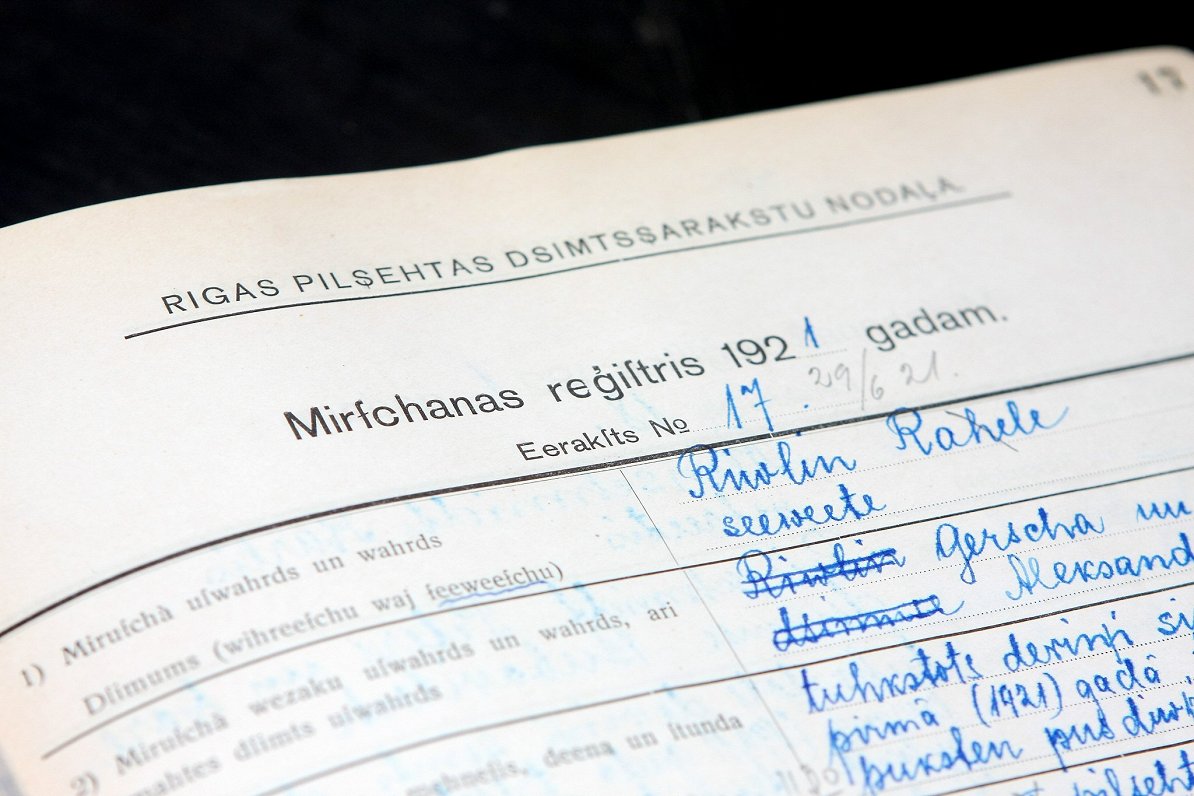Searching the family tree will be easier – the right of third parties to access information from the death record has been extended
Currently, family tree research is in vogue, if 10 years ago the researcher had to go to the archive and dig through the papers, now information can be found while sitting at home in slippers at the computer. However, here too you have to deal with bureaucracy, as third parties have limited access to information.
The Ministry of Justice has decided to give third parties access to the register of the dead if the registration in the register was made at least 30 years ago.
The decision to give third parties access to the death record is more useful for those who are not researching their own family, especially those who live abroad.
This is the opinion of Agnese Luse, a researcher on the life paths of individuals and families. She also emphasizes the great bureaucracy that the researcher faces: “In my experience, at least half of my clients are from abroad, from different countries, who have ancestors in Latvia and who is also interested in the history of this family. , it is almost impossible for them to check themselves and it is also extremely difficult to request different types of certificates from abroad, especially if you are not a citizen of Latvia and you cannot request services electronically through Latvija.lv, very bureaucratic approach.”
Family tree research begins for each person in an individual way, someone just loves history, for someone it is important to know how their family began, or on the other hand – the need for the inheritance to organize. Agnese Luse answers the question – what exactly should you start your research with – with a white sheet of paper: “You have to write down all the known information on the page, starting with yourself and then every generation ago, it is important to write down the places of birth, times, dates, below, if the places and dates of the marriages are known.
Here, it is important to always record the locations, because unfortunately only the date or year is not enough. You need to know which parish or which church books they look for this information.”
Currently, the 19th century does not cause problems for researchers, because the information is available and there are no longer any restrictions on this period. On the other hand, there are great challenges in the 20th century and a test of will power, says Agnese Luse: “For the last 100 years, they are in the register offices and they are not freely available, you have to ask for references there and mostly yourself. you have to prove your relationship, but there are some documents that are also from the 20th century available on the Internet, for example, the 1941 census, to some extent also the 1935 census and, of course, individual student files half, or some address books, or you can find news in newspapers, each case is very different.”
The journalist Arnis Krauze also agrees with this opinion, who describes himself as a non-professional enthusiast who is very interested in learning not only his own, but also families other people. Krauze has researched his family to the end of 1700. In Arni Krauze’s opinion, these dates are too long:
“Such an initiative by the ministry is very welcome, because as far as I can see, family research, learning about our ancestors is becoming more popular.
It is particularly exciting that I see young people becoming more and more interested in who their great-grandparents and great-grandparents were, where they lived and what they did, so it is very helpful to have information like this about what people did 100 years ago, increasingly at a reasonable price. On the one hand, I understand these data protection issues, because these laws require that church records be published only 100 years after the record was made. This is how you can officially turn the pages of the church books written in 1914.”
The two researchers point out that other records should also be reviewed, such as the 1935 census, which is not publicly available for data protection reasons. The restrictions imposed by the Archives Act are also causing headaches for genealogists. On the other hand, as Līga Stabule, deputy director of the registration department of the Ministry of Justice, explains, these changes were necessary to reconcile two existing laws that allow people to easier access: “The Archives Law mandates that documents containing personal data will generally be available 30 years after the death of the person to whom the document refers. Therefore, the period of confidentiality the death data applied in the law on the registration of civil status is determined by analogy with the law of the archive, connecting this period of 30 years after the death of that person, on which the record was made .”
As the representative of the Ministry of Justice said, there are no plans to review and provide access to other records in the near future. This means that every researcher of family trees, and not only, should behave with patience and continue with the starting path of researchers in this direction.
Highlight the text and press Ctrl+Enterto send the text fragment to be corrected to the editor!
Highlight the text and press forward Report a bug buttons to send the text fragment for correction to the editor!
2024-05-12 06:27:16
#Searching #family #tree #easier #parties #access #information #death #record #extended


